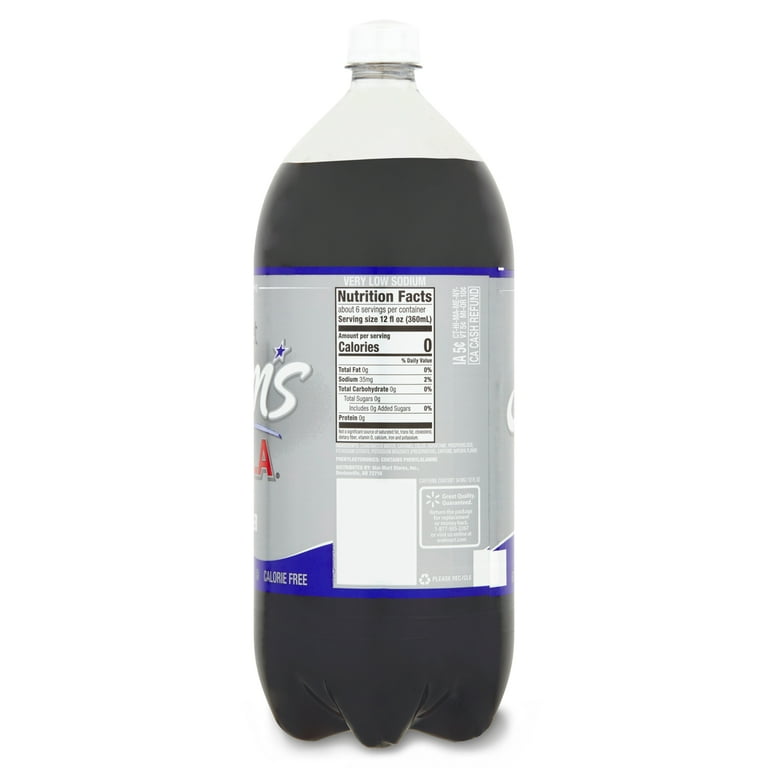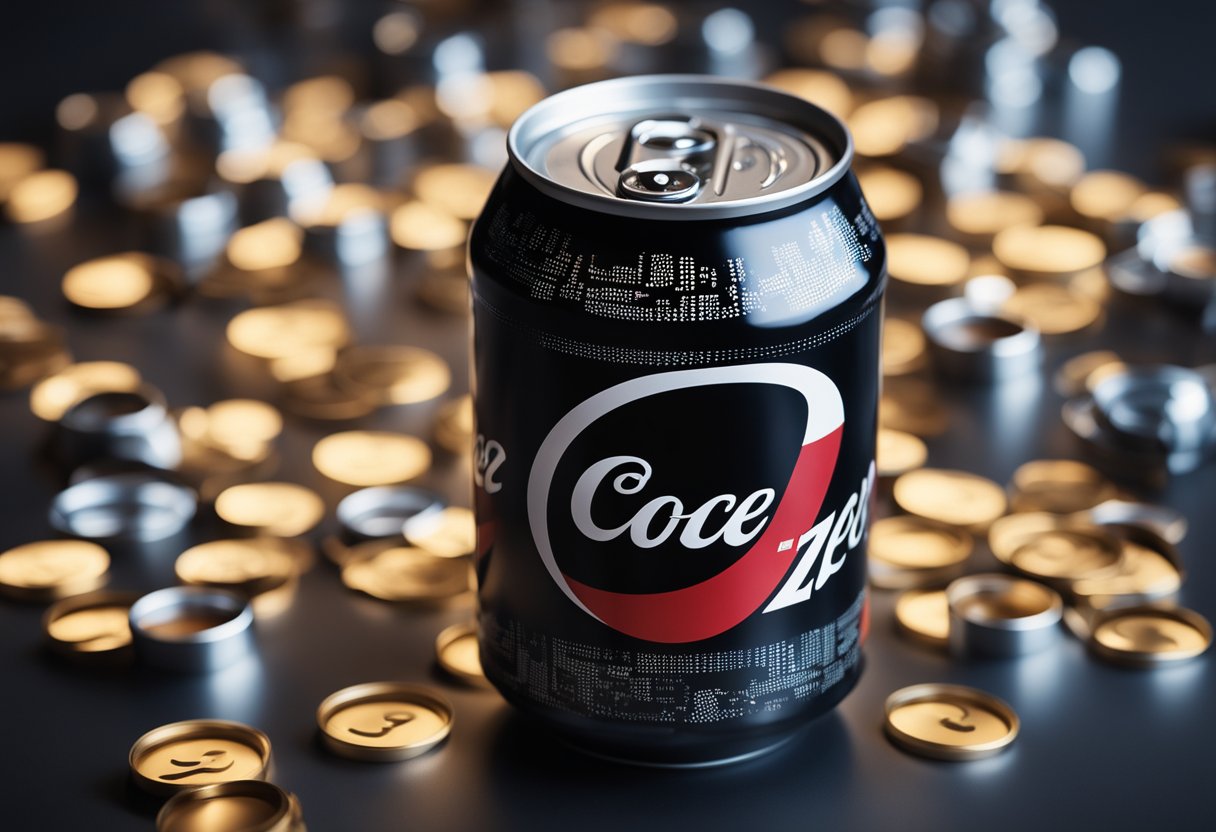Pepsi nutrition facts can be found on the official Pepsi website or on the can label. The nutrition information includes calories, sugar content, and other relevant details.
When checking the Pepsi nutrition facts, it’s important to consider the serving size and the specific product variation. Understanding the nutritional content of Pepsi can help individuals make informed choices about their consumption. Additionally, being aware of the sugar and calorie intake from Pepsi products can contribute to a balanced diet and lifestyle.
Whether enjoying a Pepsi can or considering its nutritional impact, knowing the facts is essential.
The Importance Of Understanding Pepsi Nutrition Facts
Understanding Pepsi nutrition facts is crucial for making informed choices. Knowing the calories, sugar content, and other nutrients in Pepsi can help in managing your daily intake effectively. Stay aware of the nutritional value to support a balanced lifestyle.
What Are Nutrition Facts?
Understanding Pepsi nutrition facts is essential for maintaining a healthy lifestyle. Nutrition facts provide valuable information about the nutritional content of a product, including its calories, fat, carbohydrates, protein, and various vitamins and minerals. These facts are typically displayed on the product’s packaging or on the company’s website. By reading and understanding the nutrition facts, you can make informed choices about the food and beverages you consume.
Why Should You Care About Pepsi Nutrition Facts?
It is crucial to care about Pepsi nutrition facts because they allow you to make conscious decisions about your diet. By understanding the nutritional content of Pepsi, you can assess its impact on your overall health, manage your calorie intake, and ensure that you are consuming the necessary nutrients. Whether you are trying to lose weight, maintain a balanced diet, or manage specific health conditions, knowing the nutrition facts of Pepsi can help you make informed choices that align with your goals. When analyzing Pepsi nutrition facts, pay attention to important information such as calories, sugar content, and any added ingredients.
A higher intake of calories and sugar may contribute to weight gain and increase the risk of health problems such as obesity and diabetes. Furthermore, if you have dietary restrictions or adhere to specific dietary plans, knowing the ingredients list can help you determine whether Pepsi aligns with your needs. To better understand Pepsi nutrition facts, let’s take a closer look at the typical nutritional values found in a 12 oz can of Pepsi. Please note that these values may vary slightly depending on the specific product:
– Calories: Around 150 calories per can.
– Sugar: Approximately 41 grams of sugar. – Fat: 0 grams of fat.
– Carbohydrates: Approximately 41 grams of carbohydrates. – Protein: 0 grams of protein.
– Sodium: Around 30 milligrams of sodium. It’s important to keep in mind that these values are based on a single serving size, which is usually mentioned on the can.
Considering the portions you consume can help you accurately track your calorie and nutrient intake. Knowing the nutrition facts of Pepsi enables you to make conscious decisions about incorporating it into your diet. Whether you choose to indulge occasionally or limit your consumption, understanding the impact of Pepsi on your nutritional intake is crucial for maintaining a balanced and healthy lifestyle.

Credit: www.walmart.com
Decoding Pepsi Nutrition Facts
Decoding Pepsi Nutrition Facts: Discover the sugar content and total calories in a can of Pepsi. Find out the nutritional value of this popular soft drink to make informed choices about your beverage consumption.
Calories And Serving Size
Pepsi nutrition facts can vary based on the serving size, showcasing a glimpse into the calorie content. A standard 12-ounce can of Pepsi contains 150 calories.
Sugar And Artificial Sweeteners
When it comes to sugar and sweeteners, a 12-ounce can of Pepsi contains approximately 41 grams of sugar. High fructose corn syrup is the primary sweetener used in Pepsi, with no artificial sweeteners present.
Fat And Sodium Content
Pepsi contains no fat. However, it does have 30 mg of sodium per 12-ounce can. It is crucial to consider sodium intake as part of a healthy diet.
Vitamins And Minerals
Pepsi does not offer significant vitamins and minerals. However, it does contain a small amount of potassium, providing about 2% of the recommended daily intake.
Comparing Pepsi To Other Beverages
When comparing Pepsi to other beverages, it’s important to consider the nutrition facts and ingredients to make informed choices about what we consume. Understanding the differences between Pepsi and other popular drinks can help us make healthier decisions without sacrificing taste.
Pepsi Vs. Coca-cola
Both Pepsi and Coca-Cola are leading carbonated drinks, but they differ slightly in their nutrition facts. On average, Pepsi contains 150 calories and 41 grams of sugar per 12-ounce serving, while Coca-Cola contains 140 calories and 39 grams of sugar in the same serving size. While the differences may seem minimal, they can impact daily sugar intake and calorie consumption.
Pepsi Vs. Other Carbonated Drinks
Compared to other carbonated beverages like ginger ale or root beer, Pepsi tends to have a higher sugar content. For example, some ginger ales contain 32 grams of sugar per 12-ounce serving, while certain root beers can have up to 48 grams of sugar in the same serving size. Understanding these variations can help individuals make more mindful choices when selecting carbonated drinks.
Pepsi Vs. Fruit Juices
When comparing Pepsi to fruit juices, it’s important to note that fruit juices may naturally contain sugar from the fruits themselves. However, some fruit juices can have comparable or even higher sugar content than Pepsi. For instance, cranberry juice cocktail can contain 37 grams of sugar per 12-ounce serving. It’s essential to consider the source of sugar when comparing Pepsi to fruit juices.
Pepsi Vs. Water And Sports Drinks
When stacked against water and sports drinks, Pepsi clearly stands out with its significantly higher sugar and calorie content. Water and sports drinks generally contain minimal to no sugar and calories, making them healthier options for hydration. By understanding these differences, consumers can make informed decisions about their beverage choices based on their nutritional goals.
Impact Of Pepsi Nutrition On Health
Pepsi’s nutrition facts include high sugar and calorie content, which can negatively impact health when consumed in excess. Regular consumption may lead to weight gain, diabetes, and other health issues. Monitoring soda intake and choosing healthier beverage options is crucial for maintaining overall well-being.
Pepsi is one of the most popular carbonated drinks enjoyed by people worldwide. However, it’s important to recognize the impact that Pepsi nutrition can have on our health. Understanding the potential health risks, effects on weight management, dental health implications, and its link to chronic diseases is essential for making informed decisions about our beverage choices.
Potential Health Risks
Pepsi contains a significant amount of sugar and calories, which can contribute to various health risks. Excessive consumption of sugary drinks like Pepsi has been linked to an increased risk of obesity, type 2 diabetes, and heart disease. The high sugar content in Pepsi can also lead to a spike in blood sugar levels, causing energy crashes and cravings.
Effects On Weight Management
If you’re trying to manage your weight, it’s crucial to be aware of the impact that Pepsi can have on your goals. A single can of Pepsi can contain up to 150 calories, and regular consumption of these calories without offsetting them through exercise or a balanced diet can contribute to weight gain over time. Additionally, the high sugar content in Pepsi can provide empty calories that do not provide essential nutrients, leaving you feeling unsatisfied and more likely to overeat.
Dental Health Implications
The sugar and acid content in Pepsi can have detrimental effects on dental health. The combination of sugar and bacteria in the mouth can lead to the formation of plaque, which can cause tooth decay and cavities. The acidity of Pepsi can also erode tooth enamel, leading to sensitive teeth and increased vulnerability to dental issues. It’s important to limit your consumption of sugary drinks like Pepsi and maintain proper dental hygiene to mitigate these risks.
Link To Chronic Diseases
Research has shown that regular consumption of sugary beverages like Pepsi is associated with an increased risk of chronic diseases. The high sugar content in Pepsi can contribute to insulin resistance, promoting the development of type 2 diabetes. Furthermore, the excess calories from sugary drinks can contribute to weight gain, leading to obesity, which is a risk factor for conditions such as heart disease and certain types of cancer.
In conclusion, while Pepsi may be a refreshing and enjoyable drink, it’s crucial to recognize the potential health risks associated with its nutrition composition. Being mindful of the impact that Pepsi can have on weight management, dental health, and the development of chronic diseases can help us make informed choices for our overall well-being.
Making Informed Choices: Pepsi Alternatives
- Choose unsweetened teas or natural fruit juices.
- Opt for low-sugar or no-sugar-added drinks.
- Enhance your water with fresh fruits like berries or citrus for flavor.
- Experiment with herbs like mint or basil for a refreshing twist.
- Gradually replace Pepsi with sparkling water or flavored seltzers.
- Track your intake to monitor progress.
Remember to enjoy Pepsi in moderation and balance with healthier alternatives for a well-rounded diet.

Credit: www.openhealthtools.org
FAQs On Can Pepsi Nutrition Facts
How Much Sugar Is In Pepsi Can?
There are 39 grams of sugar in a Pepsi can. For Coca-Cola, it’s 39 grams as well.
How Much Carbs Is In A Can Of Pepsi?
A can of Pepsi contains 39 grams of carbs.
How Much Sugar Does 8 Oz Of Pepsi Have?
8 oz of Pepsi contains approximately 26 grams of sugar.
How Much Sugar Is In A 12 Oz Can Of Coke?
A 12 oz can of Coke contains 39 grams of sugar.
Conclusion
Pepsi nutrition facts are essential to consider when making choices about what we consume. The amount of sugar and calories in a can of Pepsi might surprise you, with 39 grams of sugar alone. It’s important to be aware of the nutritional value of soft drinks like Pepsi, especially if you’re watching your sugar intake.
By understanding the facts, you can make informed decisions about your beverage choices. So, next time you reach for a can of Pepsi, remember to consider its nutrition content.

